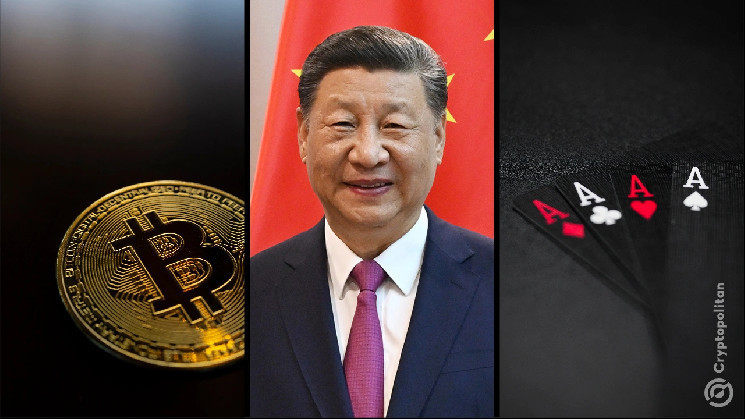
On Friday, Chinese President Xi Jinping emphasized the need for Macau to prioritize economic diversification as its “first” objective during a three-day visit to the Chinese gambling hub. The trip marked the 25th anniversary of Macau’s handover from Portugal, as the city aims to expand its role within China’s mainland economic framework.
According to a Financial Times report, Xi made these remarks at the swearing-in ceremony of Macau’s new chief executive, Sam Hou Fai, who is the city’s fourth leader since the 1999 handover.
Sam, Macau’s first leader born in mainland China who arguably has weaker ties to the business sector than his predecessors, is seen as aligned with Beijing’s push for diversification beyond the gambling industry, which currently accounts for 80% of the city’s tax revenue.
Xi Jinping urges Macau to diversify its economy
“First, Macau should focus on promoting appropriate economic diversification,” Xi urged, encouraging increased policy support and investment in emerging industries. He also stressed the importance of aligning Macau’s development with national strategies, including integration with the Greater Bay Area, a regional economic zone comprising Hong Kong, Macau, and Guangdong province.
Anthony Lawrance, founder of consultancy Intelligence Macau, believes Xi’s visit will be influential in the city’s growth. “It will be the first time that he heaps praise on Macau for a job well done. His previous trips were to admonish and cajole,” he remarked.
Macau’s gambling industry, the cornerstone of its economy, has thrived since the liberalization of its gaming monopoly in 2002, attracting investments from global casino giants like Las Vegas Sands, MGM, and Wynn.
However, the city’s reliance on visitors from mainland China made it vulnerable during the COVID-19 pandemic, when stringent travel restrictions led to economic stagnation.
Recent data suggests the city is pacing itself into recovery. In the first 11 months of 2024, Macau’s gross gaming revenue increased by 26.8% year-on-year to MOP 208.58 billion (US$25.8 billion), representing 77.4% of its pre-Covid level in 2019.
Visitation also surged, with 29.05 million visitors in the first 10 months of 2024, marking a 28.1% increase compared to the previous year and nearing 87% over pre-pandemic levels.
Hong Kong’s economic diversification rivals Mainland China
In contrast to Macau, neighboring Hong Kong has successfully diversified its economy for years now. The city recently approved four cryptocurrency exchanges as part of efforts to establish itself as a global hub for digital asset trading.
The Hong Kong Securities and Futures Commission granted licenses to Accumulus GBA Technology, DFX Labs Company, Hong Kong Digital Asset EX, and Thousand Whales Technology, bringing the total number of licensed platforms in the city to seven. Previously approved platforms include HashKey, OSL, and HKVAX.
Hong Kong, a special administrative region of the People’s Republic of China, has traditionally operated under the “one country, two systems” framework, a policy introduced by Chinese leader Deng Xiaoping in the 1980s. This arrangement allowed Hong Kong to maintain a high degree of autonomy in managing its own affairs, distinguishing it from mainland China.
When Hong Kong was handed back to China in 1997, Beijing pledged to preserve the region’s unique characteristics. As part of this agreement, China promised to uphold Hong Kong’s capitalist system and grant the city freedoms not available in mainland Chinese cities for fifty years.
The freedom allowed Hong Kong to create a regulatory framework for cryptocurrencies, which took effect in April 2023, to issue licenses for all virtual asset service providers. Mainland China has been reluctant to follow the trend.
While cryptocurrency trading is banned in mainland China, Hong Kong residents are allowed to purchase digital assets, which is why the city’s projected revenue from online gambling could surpass $600 million in 2024, as revealed by Statista.
Land a High-Paying Web3 Job in 90 Days: The Ultimate Roadmap
